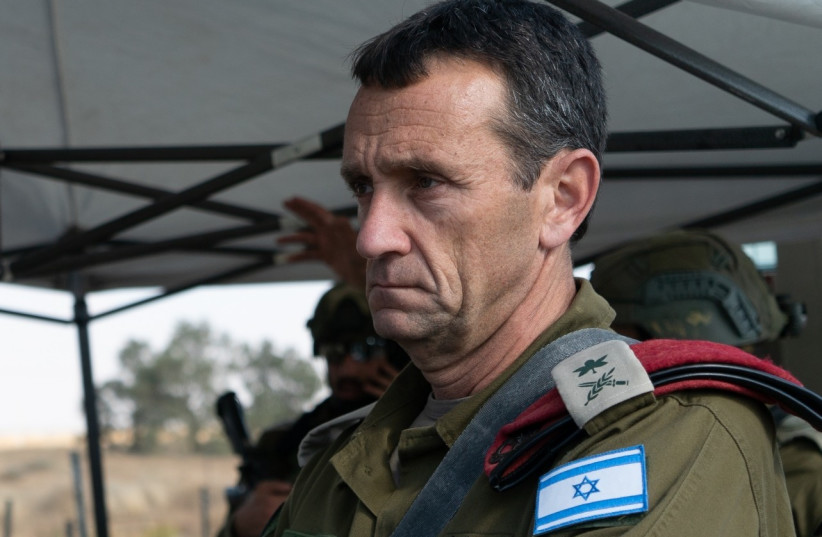IDF Chief of Staff commemorates 50th anniversary of Yom Kippur War in staff letter
IDF Chief of Staff Herzi Halevi penned a letter addressed to IDF service members in which he celebrates the 50th anniversary of the 1973 Yom Kippur War, which saw nearly 3,000 Israeli soldiers lose their lives, on Friday morning.
Halevi described the war and the impact it had on the growing nation of Israel, which had been founded just 25 years before the start of the Yom Kippur War and was just six years removed from the Six-Day War that saw the Jewish state nearly double its sovereign territory.
“In the early afternoon of Yom Kippur in 1973, the militaries of Egypt and Syria launched a coordinated attack on Israel on two fronts.
“Within a short period of time, the Egyptian forces established themselves on the eastern side of the Suez Canal, and the Syrians were overlooking the Kinneret,” Halevi wrote.
“At the end of about three weeks of bloody battles, the IDF managed to stop the larger enemy forces, transfer the fighting to the enemy’s territory, and defeat them.
“The war, which started by surprise, ended when the IDF threatened the capitals of Egypt and Syria and imposed a ceasefire on them.”

A surprising start to the war
The eponymously named war broke out on the morning of Yom Kippur in 1973 when much of the country was celebrating the Jewish Day of Atonement. Shockingly, there was no prior warning until alarms went off across Israel notifying civilians that the country was under attack.
“The failure of warning on the eve of the war is the worst failure in the history of the State of Israel,” explained Halevi.
“Its roots are in arrogance, lack of understanding of the abundant intelligence information, and disregard for the enemy. The lessons we took from the war remind us of our obligation to be modest, and the order of readiness – in strengthening, updating the concept of operating and training the mandatory and reserve soldiers.”
Halevi also celebrated the courage of Israeli soldiers who heroically led the country out of this struggle, even after an unexpected start to the war.
“The many acts of heroism during the war in the face of enemy fire are a source of inspiration for us. Adherence to the mission of the soldiers of the IDF and its commanders, their courage, and their dedication, are what won the war. The reserve soldiers who left the synagogues and rushed to report to service during the war proved that the unity of the military is the key to overcoming the difficulties in situations,” Halevi said.
“The effort to hold our defenses resulted in heavy losses among IDF soldiers, who were few in number fighting against larger forces,” Halevi said regarding the 2,689 fallen soldiers of the IDF before sending regards to the families of Israel’s fallen heroes.
Halevi ended on a positive note, highlighting Israel’s military advancements and achievements since the end of the Yom Kippur War.
“Fifty years have passed. Today’s IDF is a strong military with advanced capabilities, operating successfully in all arenas against a variety of enemies and threats. Our strength comes from the combination of air, land, and naval forces with intelligence efforts… (as well as) professionalism, dedication, and courage,” Halevi continued.
“Our enemies should know that the spirit of the IDF soldiers and the unity of its ranks do not fall short of those of the soldiers who fought in the Yom Kippur War and that the IDF is as ready as ever for a multi-arena military conflict if it is required,” declared Halevi.





Comments are closed.